
Ellas Otha Bates, known professionally as Bo Diddley, was an American guitarist and singer who played a key role in the transition from the blues to rock and roll. He influenced many artists, including Buddy Holly, the Beatles, the Rolling Stones, the Animals, George Thorogood, Syd Barrett, and the Clash.
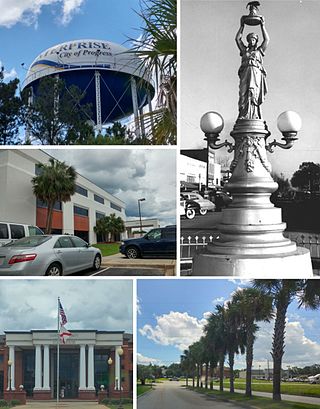
Enterprise is a city in the southeastern part of Coffee County and the southwestern part of Dale County in Southeastern Alabama, United States. Its population was 28,711 at the 2020 census. Enterprise is the primary city of the Enterprise micropolitan statistical area. It was originally a part of Enterprise–Ozark micropolitan area before being split; for a longer while it was originally part of the Dothan-Enterprise-Ozark combined statistical area but is now its own separate primary statistical area in later censuses.
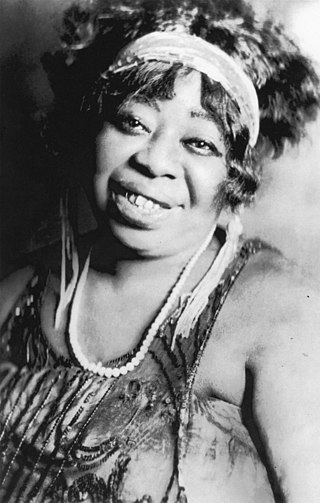
Gertrude "Ma" Rainey was an American blues singer and influential early-blues recording artist. Dubbed the "Mother of the Blues", she bridged earlier vaudeville and the authentic expression of southern blues, influencing a generation of blues singers. Rainey was known for her powerful vocal abilities, energetic disposition, majestic phrasing, and a "moaning" style of singing. Her qualities are present and most evident in her early recordings "Bo-Weevil Blues" and "Moonshine Blues".

The boll weevil is a species of beetle in the family Curculionidae. The boll weevil feeds on cotton buds and flowers. Thought to be native to Central Mexico, it migrated into the United States from Mexico in the late 19th century and had infested all U.S. cotton-growing areas by the 1920s, devastating the industry and the people working in the American South. During the late 20th century, it became a serious pest in South America as well. Since 1978, the Boll Weevil Eradication Program in the U.S. allowed full-scale cultivation to resume in many regions.

Gustavus Cannon was an American blues musician who helped to popularize jug bands in the 1920s and 1930s. There is uncertainty about his birth year; his tombstone gives the date as 1874.
A work song is a piece of music closely connected to a form of work, either one sung while conducting a task or one linked to a task that may be a connected narrative, description, or protest song. An example is "I've Been Working on the Railroad".

Benjamin Franklin Peay, known professionally as Brook Benton, was an American singer and songwriter whose music transcended rock and roll, rhythm and blues, and pop music genres in the 1950s and 1960s, with hits such as "It's Just a Matter of Time" and "Endlessly".
Dinosaurs constitute a group of animals of the clade Dinosauria.

Boll weevils was an American political term used in the mid-to-late 20th century to describe conservative Democrats, particularly Southern Democrats.
In American politics, a conservative Democrat is a member of the Democratic Party with more conservative views than most Democrats. Traditionally, conservative Democrats have been elected to office from the Southern states, rural areas, and the Great Plains. In 2019, the Pew Research Center found that 14% of Democratic and Democratic-leaning registered voters identify as conservative or very conservative, 38% identify as moderate, and 47% identify as liberal or very liberal.

Boll Weevil is a casual dining chain of hamburger restaurants located in San Diego, California, United States.

The Boll Weevil Monument in downtown Enterprise, Alabama, United States, is a prominent landmark and tribute erected by the citizens of Enterprise in 1919 to show their appreciation to an insect, the boll weevil, for its profound influence on the area's agriculture and economy. Hailing the beetle as a "herald of prosperity," it stands as the world's first monument built to honor an agricultural pest.
Black sheep is an idiom used to describe an odd or disreputable member of a group, especially within a family.
"Road Runner" is a 12-bar blues song performed by American rock and roll performer Bo Diddley, originally released as a single by Checker Records in January 1960, and later released on the LP record Bo Diddley in the Spotlight. The song reached #20 on Billboard magazine's Hot R&B Sides chart, and #75 on the Hot 100. The song has since been recorded by many artists.

Looking for a Home is an album by American folk singer Odetta, released in 2001. It consists of songs written and/or performed by Huddie Ledbetter, better known as Leadbelly. It was her 18th and final studio album.
"Boll Weevil" is a traditional blues song, also known by similar titles such as "Boweavil" or "Boll Weevil Blues". Many songs about the boll weevil were recorded by blues musicians during the 1920s through the 1940s. However, a rendition by Lead Belly recorded in 1934 by folklorist Alan Lomax led to it becoming well-known. A 1961 adaptation by Brook Benton became a pop hit, reaching number two on the Billboard Hot 100. Fats Domino's "Bo Weevil" is a different song.
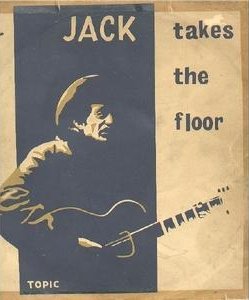
Jack Takes the Floor is an album by American folk musician Ramblin' Jack Elliott, released in Great Britain in 1958. The original release was a 10-inch LP.

"Silvio" is a folk rock song written by Bob Dylan and Robert Hunter and released by Dylan as the seventh track of his 1988 album Down in the Groove. Performed alongside the Grateful Dead, the song was released as the album's only single and spent eight weeks on Billboard's Mainstream Rock chart, peaking at #5 on July 1, 1988.
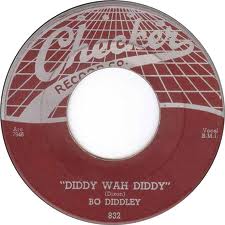
"Diddy Wah Diddy" is a song written by Willie Dixon and Ellas McDaniel, known as Bo Diddley, and recorded by the latter in 1956. The song shares only its title with Blind Blake's song "Diddie Wah Diddie" recorded in 1929. Over the years, the Bo Diddley song has been covered by many bands and artists, including the Astronauts, Captain Beefheart and his Magic Band, the Remains, the Twilights, Taj Mahal, the Sonics, the Fabulous Thunderbirds, Ty Segall Band, and the Blues Band among others.
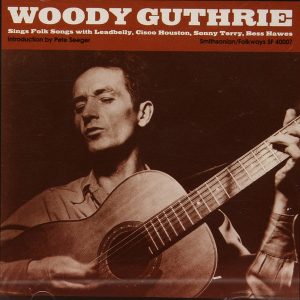
Woody Guthrie Sings Folk Songs is a remastered compilation album of American folk songs sung by legend Woody Guthrie accompanied by Lead Belly, Cisco Houston, Sonny Terry, and Bess Lomax Hawes originally recorded for Moses Asch in the 1940s and re-released in 1989 by Folkways Records.













